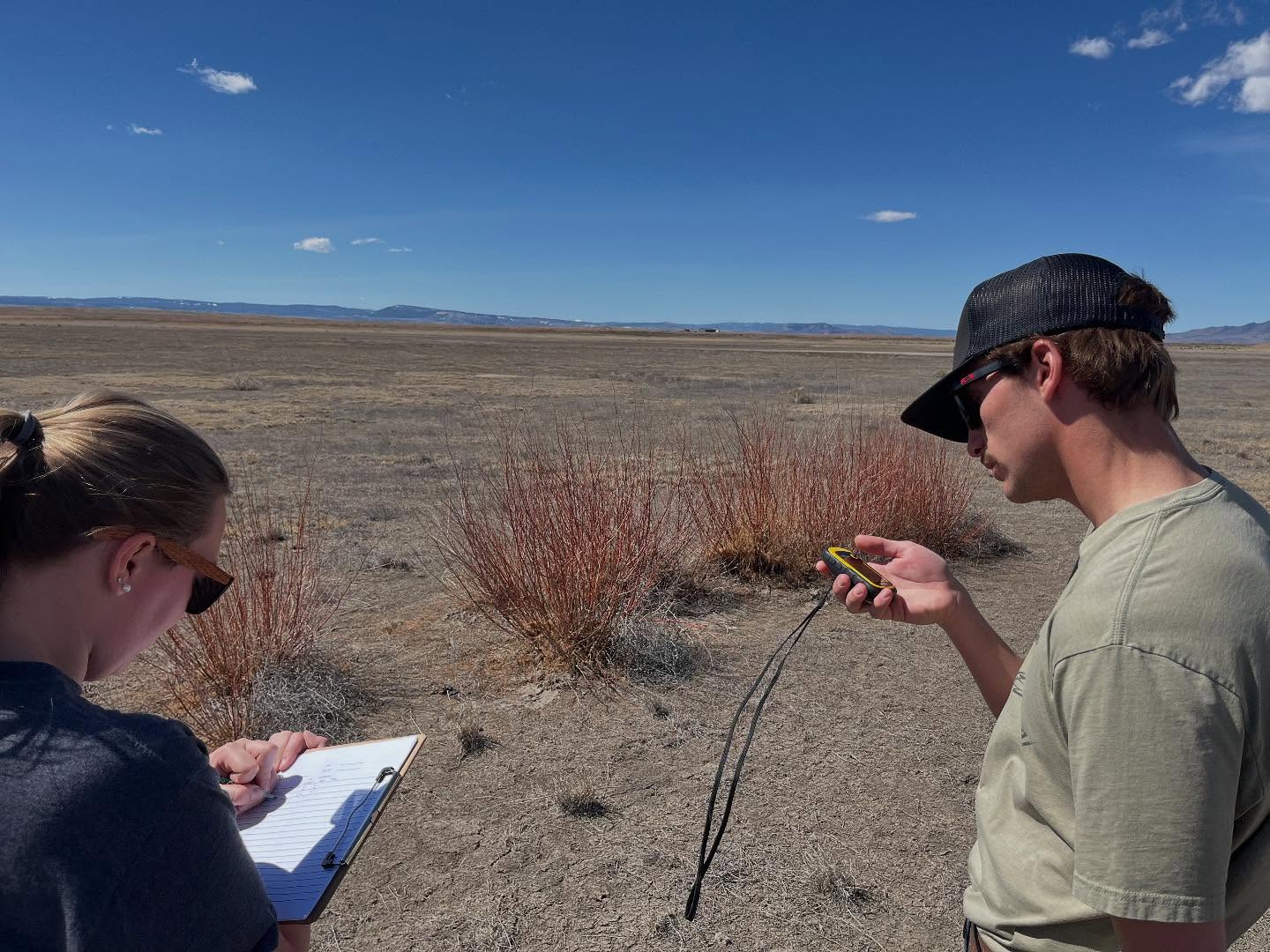EXPLORE OUR MAJOR
Rangeland Ecology and Watershed Management combines ecology, hydrology, soil science, and land management, with a bit of policy to reflect real world challenges. As a student in this program, you'll learn how to understand, manage, and restore complex ecosystems through hands on experiences like fieldwork, research, internships, and study abroad. Whether you pursue graduate school or jump straight into a career, you'll be prepared to work with producers, agencies, and communities to make informed decisions about land use. This program is accredited by the Society for Range Management and meets federal requirements for rangeland management specialists.

Explore Our Minors
Rangeland Ecology and Watershed Management Minor
Rangeland Ecology and Watershed Management equips students with the knowledge, skills, and tools to understand, manage, and restore rangelands and wildlands across a wide range of landscapes and ecosystems.
Learn MoreReclamation & Restoration Ecology Minor
This program focuses on applying ecological principles to real-world challenges by exploring how to rehabilitate, reclaim, and restore disturbed ecosystems. You'll gain the knowledge and experience needed to make a meaningful impact on lands affected by mining, development, or other disturbances.
Soil Science Minor
This program is a great way to build specialized knowledge in soil science, especially for students focusing on agriculture, natural resources, or environmental science. It’s designed to strengthen your understanding of soil systems and prepare you for careers or further study in land management, conservation, or environmental consulting.
Insect Biology Minor
In the Insect Biology program, you'll explore the fascinating world of insects and their relatives—diving into their biology, behavior, ecology, and evolution to understand their vital roles in ecosystems and everyday life.
Forest Resources Minor
In Forest Resources, you will gain a working knowledge of the processes that influence forest ecology, sustainability, and harvest of the key products derived from forests.
Student Learning Outcomes
The Department of Ecosystem Science and Management is committed to providing students with a well rounded education that goes beyond their specific major. Our goal is to help you build a broad foundation of knowledge, hands on skills, and professional attitudes that you can carry into your career or graduate studies. We assess learning across key areas like communication, problem solving, and professionalism to support your growth and readiness for real world challenges. These results also help us improve the student experience by shaping course strategies, guiding academic and career advising, evaluating student progress, and strengthening our overall programs.
Oral & Written Communication
Develop the confidence to share your ideas clearly, whether speaking in class, giving a presentation, or writing papers and reports. You’ll learn to communicate with purpose across a variety of academic and real world settings.
Professional Behavior
Build habits that set you up for success. Show up prepared, meet deadlines, work well with others, and stay open to growth. These traits matter in class, on the job, and in life beyond college.
Critical thinking & problem solving
Learn to break down complex issues, ask the right questions, and make thoughtful decisions. These skills help you approach challenges with confidence and flexibility in any situation.
Computer & Information Literacy
Gain practical tech skills that help you succeed in a digital world. Learn to find reliable information, use digital tools effectively, and adapt to new platforms and technologies with ease.

The Range Club brings together students passionate about rangelands and natural resource stewardship. As the student chapter of the Society for Range Management, the club promotes hands-on learning, professional development, and leadership opportunities while working to strengthen and advance the field of range management.
Get In Touch
- Advisor: Brian Sebade
- Office: Agriculture C 1007
- Phone: (307) 766-5523
- Email: bsebade@uwyo.edu

